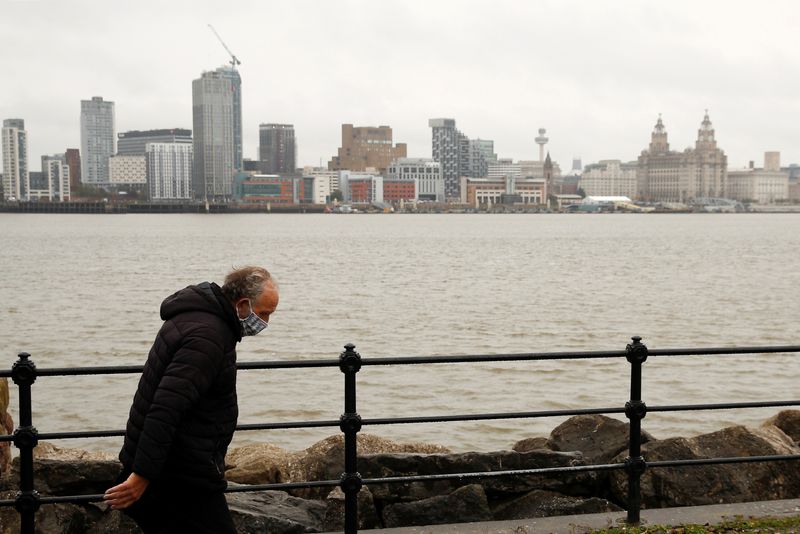By William Schomberg and Andy Bruce
LONDON (Reuters) -Britain's economy unexpectedly shrank in April, official figures showed on Monday, adding to fears of a sharp slowdown just three days before the Bank of England announces the scale of its latest interest rate response to the surge in inflation.
Gross domestic product contracted by 0.3% after falling by 0.1% in March, the first back-to-back declines since April and March 2020, at the start of the coronavirus pandemic.
Economists polled by Reuters had on average expected GDP to grow by 0.1% in April from March.
GDP would have expanded by 0.1% excluding the impact of a reduction in the government's coronavirus test-and-trace and vaccination programmes, the Office for National Statistics said.
But it was the first time since January last year that all main economic sectors had shrunk.
Over the three months to April, GDP was up by 0.2%, weaker than the Reuters poll forecast of 0.4% and slowing sharply from growth of 0.8% in the three months to March.
Many firms said increases in the cost of production had affected their business, the ONS said.
Martin Beck, chief economic advisor to the EY ITEM Club, a forecasting group, said the data was a poor launchpad for the second quarter, which was at an increased risk of showing a small contraction across the three months.
Growth was likely to rebound in the third quarter so the chances of a second successive quarterly decline in GDP – the traditional definition of a technical recession – looked low.
"But the growth outlook is poor. An already serious squeeze on households' spending power will be negatively affected by the inflationary impact of global supply chain frictions and sterling's recent weakness," Beck said.
SUNAK: IT'S GLOBAL
Finance minister Rishi Sunak, who last month announced extra support for households and is expected to do more later this year, said Britain was not alone in facing the hit from surging inflation and the fallout from Russia's invasion of Ukraine.
"Countries around the world are seeing slowing growth, and the UK is not immune from these challenges," he said in a statement.
Last week, however, the Organisation for Economic Co-operation and Development said Britain's economy would show no growth next year, the weakest forecast for 2023 of any country in the Group of 20 with the exception of sanctions-hit Russia.
On Monday, the Confederation of British Industry warned of stagnation and possibly a recession.
Despite the slowdown, the BoE is expected to raise interest rates for the fifth time since December on Thursday.
It has forecast inflation will exceed 10% in the final quarter of the year, five times its target.
Most investors and economists expect another quarter percentage-point rate hike this week, taking Bank Rate to 1.25%, its highest since 2009.
Economists said there was some encouraging news in Monday's GDP data including a 2.6% increase in consumer-facing services such as hairdressing and the grooming industry. The retail sector also grew by 1.4%.
But April's jump in domestic power tariffs and an increase in taxes paid by workers introduced that month are likely to squeeze living standards and the broader economy.
Separate trade data published by the ONS showed the impact of sanctions on Russia with exports to the country falling to the lowest monthly value since January 1999, and imports the lowest since March 2004.
With energy costs soaring, Britain imported 9.8 billion pounds of fuel goods in April alone - the highest since records began in 1997 and representing around a fifth of all goods imports.
(Reporting William Schomberg and Andy Bruce; Editing by Kylie MacLellan and Catherine Evans)
